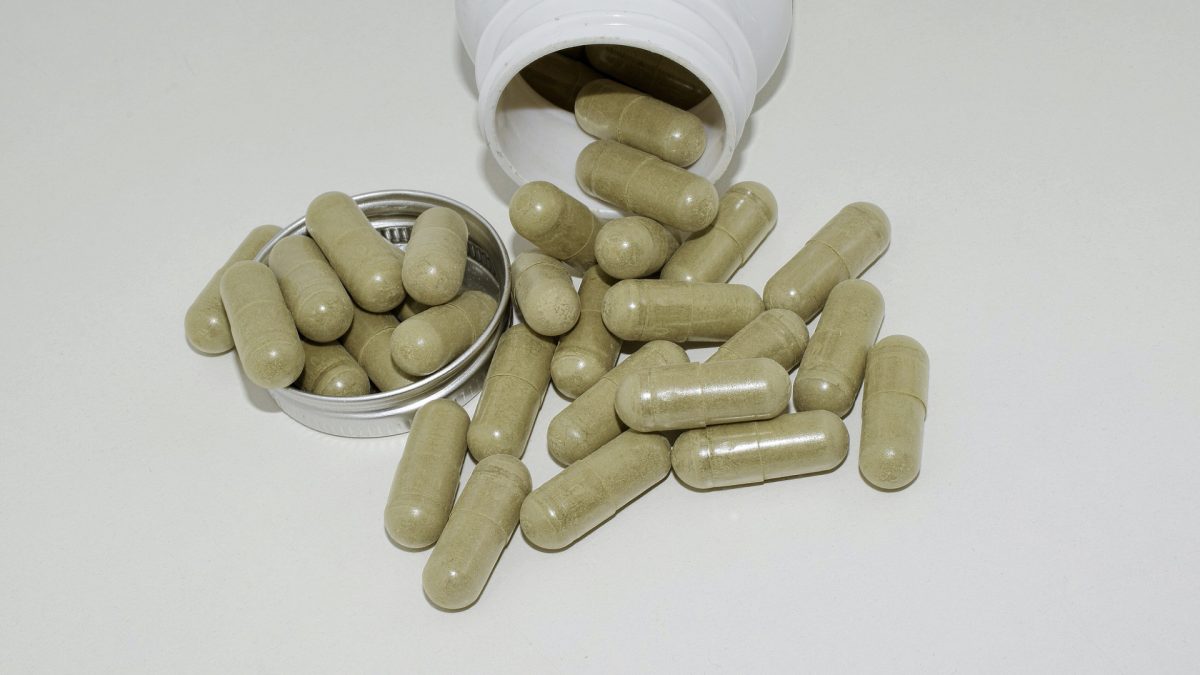The regulation of dietary supplements in the United States has been described as “too little, too late.” “Dietary supplements may be adulterated with dangerous compounds, be contaminated, fail to contain the purported active ingredient, or contain unknown doses of the ingredients stated on the label; be sold at toxic dosages; or produce harmful effects” in other ways. As I discuss in my video Black Raspberry Supplements Put to the Test, “[i]f the composition and quality of ingredients cannot be reliably ensured, the validity of research on dietary supplements is questionable. Moreover, the health of the US public is put at risk.”
A private, third-party company that has independently tested thousands of supplements “identifies approximately 1 in 4 with a quality problem” because it either does not contain what it says it contains, is “of substandard quality,” or is contaminated in some way.
Let’s look at an example. I’ve produced a few videos on the remarkable properties of black raspberries, including one on oral cancer. These berries can’t always be found fresh or frozen, so how about black raspberry supplements, which are available in stores and online? At 0:56 in my video, I show a bottle of Pure Black Raspberry by Pure Health, that says “Fresh – Raw – Pure” right on the label. Sounds good, don’t you think? When we look at the back of the bottle, the label says it contains only seedless black raspberry powder “and absolutely nothing else!” It’s nice to see there are no fillers or artificial ingredients, so why not plunk down $23.77 for a bottle? Well, it turns out we’ve been had.
The first clue is that the image on the front of the label is actually blackberries that had been Photoshopped to look like black raspberries. Pure Health couldn’t even be bothered to put a real image on its fake supplement! The second clue is that the “[d]ark olive-brown-black powder in [the] capsule did not look like berry powder and had a medicinal odor,” according to the researchers. So, it was put it to the test, and, indeed, there was no black raspberry at all. Instead of promoting the fact that the Pure Black Raspberry contains only seedless black raspberry powder “and absolutely nothing else,” the company should have just listed that the bottle contains “absolutely nothing” period—or, at least we hope it contains nothing. Who knows what’s actually in the capsules!
The researchers tested every black raspberry product they could find, and, even of the ones with the correct picture on the front and with powder that actually looked like it came from real black raspberries, more than a third appeared to have no black raspberry fruit at all. “At the moment, a consumer who assumes the US dietary supplement marketplace is free from risk”—or is even honest—“is unfortunately naive.”
How widespread is this deception? Researchers used DNA fingerprinting techniques to test the authenticity of 44 herbal supplements from a dozen different companies. As you can see at 2:33 in my video, less than half of the supplements were authentic and actually contained what they said they did. Most contained plants not listed on the label and product substitution, and many “contained contaminants and or fillers,” also not listed on the label. This isn’t just fraud: Some of this deception could really hurt people. For example, one St. John’s wort supplement contained no St. John’s wort at all. Instead, it was actually senna, which is an herbal laxative that “can cause adverse effects such as chronic diarrhea, cathartic colon, liver damage, abdominal pain, epidermal [skin] breakdown and blistering.” In the video at 3:09, you can see how the 12 companies did. Tested products from only 2 of the 12 companies appeared to be completely authentic, with the remaining 10 companies’ products containing filler, product substitution, and/or contaminants. Herbs only work if they’re actually present. Indeed, this study found that 80 percent of the manufacturers in the supplement “industry suffer[] from unethical activities…”.
“Until US dietary supplement products are better regulated and quality control standards for safety, purity, and dosage are defined and endorsed, the safer source for dietary phenolics,” or phytonutrients, “as a consumer is from food intake.”
For more on supplement company shenanigans, see:
- Health Food Store Supplement Advice
- Bad Advice from Health Food Store Employees
- Dangerous Advice from Health Food Store Employees
- Pharmacists vs. Health Food Store Employees: Who Gives Better Advice?
- Dietary Supplement Snake Oil
- Heavy Metals in Protein Powder Supplements
- Some Dietary Supplements May Be More Than a Waste of Money
- Treating Asthma with Plants vs. Supplements?
- Broccoli: Sprouts vs. Supplements
- Industry Response to Plants Not Pills
- The Risks of Shark Cartilage Supplements
What’s so special about black raspberries? Reversal of cancer progression, for starters! See Black Raspberries vs. Oral Cancer.
In health,
Michael Greger, M.D.
PS: If you haven’t yet, you can subscribe to my free videos here and watch my live presentations:
- 2012: Uprooting the Leading Causes of Death
- 2013: More Than an Apple a Day
- 2014: From Table to Able: Combating Disabling Diseases with Food
- 2015: Food as Medicine: Preventing and Treating the Most Dreaded Diseases with Diet
- 2016: How Not To Die: The Role of Diet in Preventing, Arresting, and Reversing Our Top 15 Killers
- 2019: Evidence-Based Weight Loss
